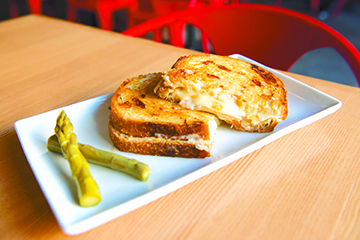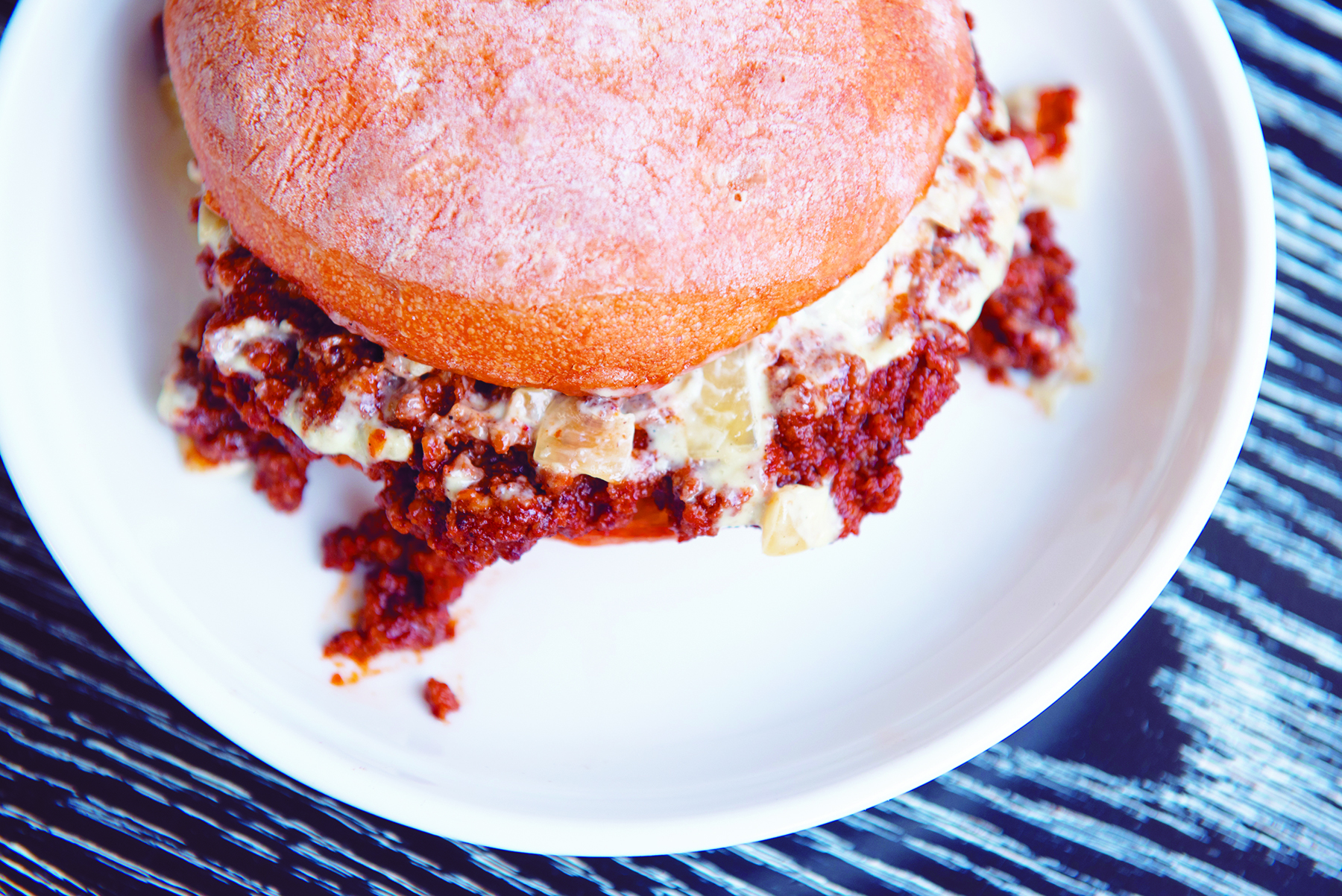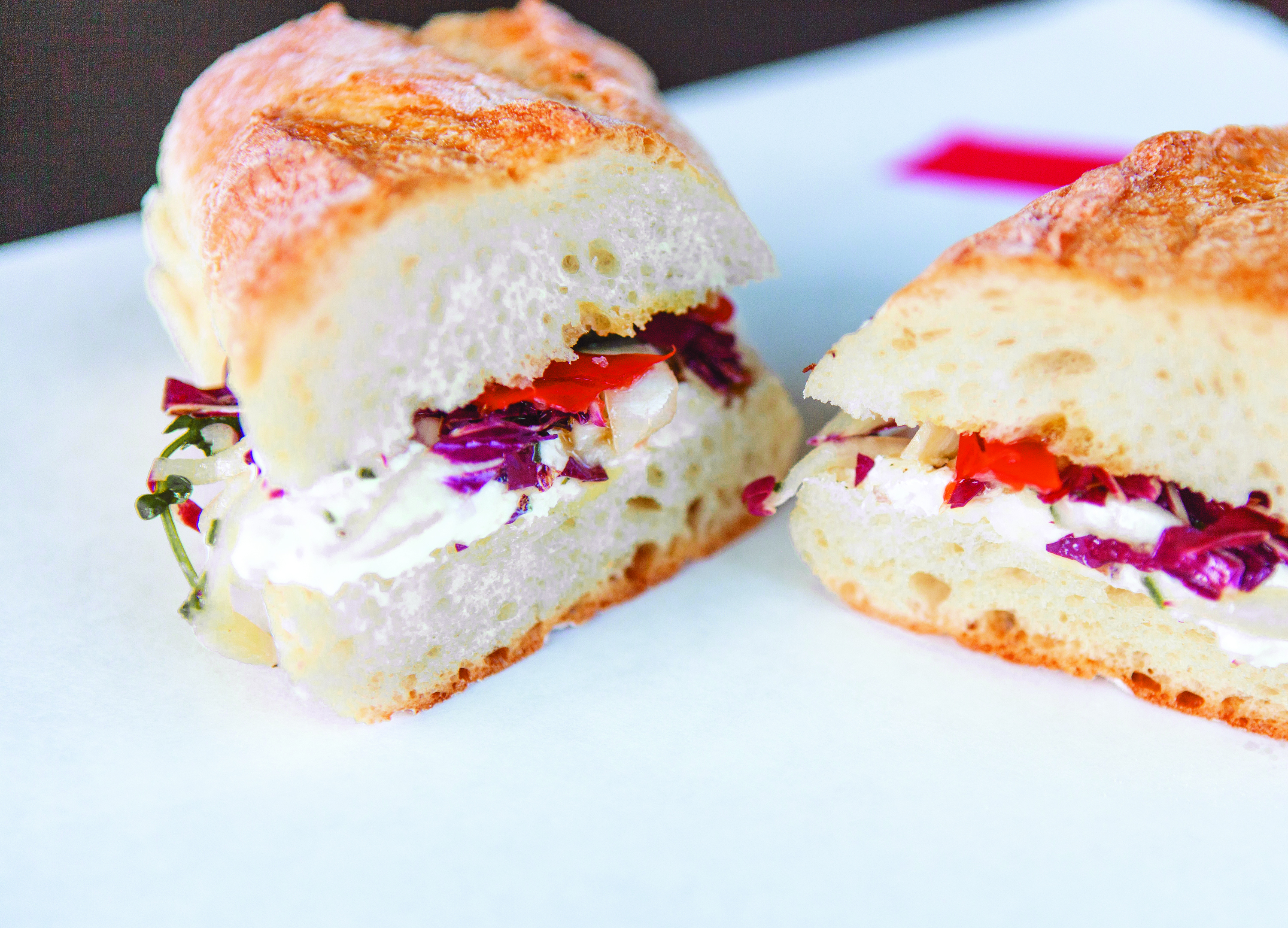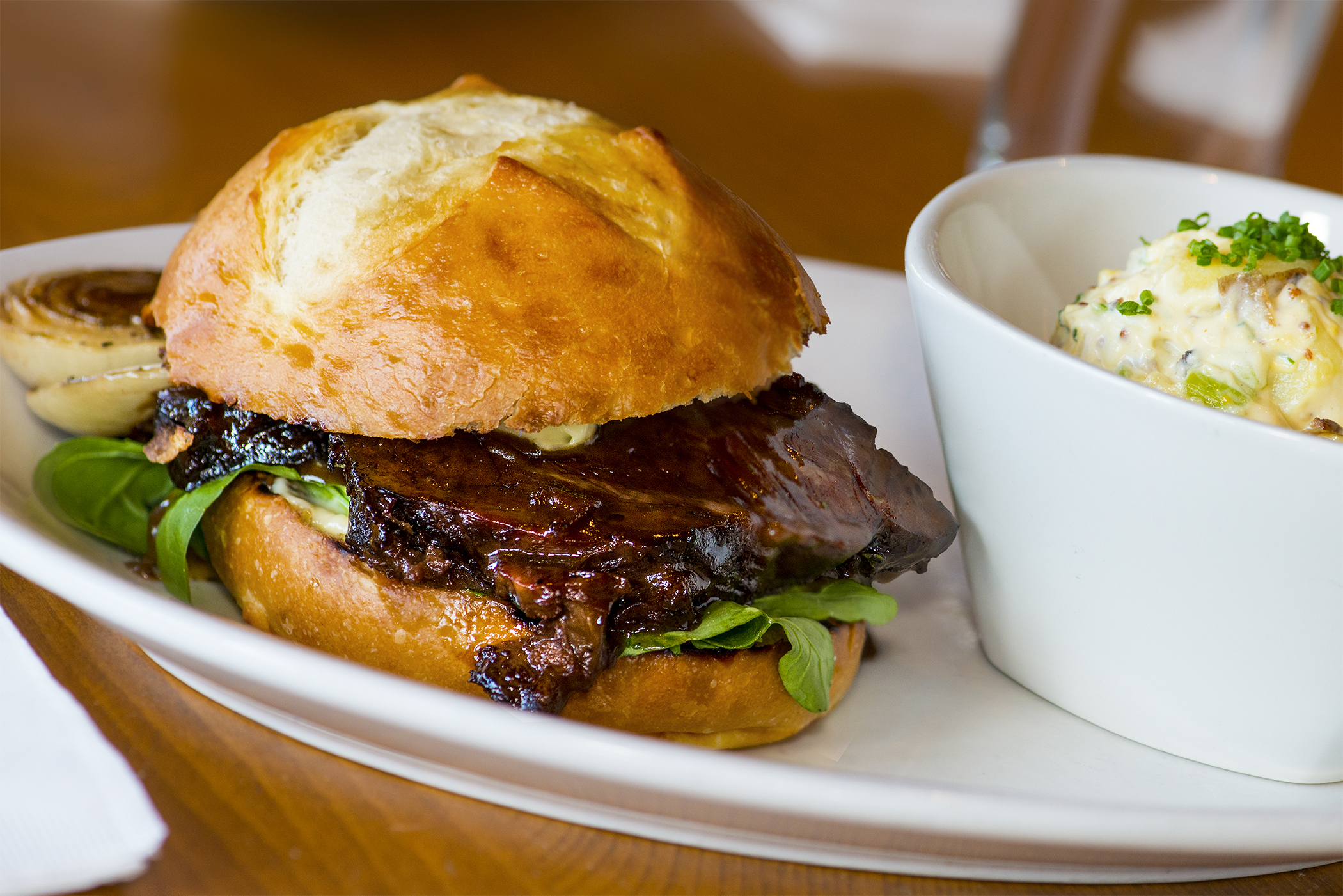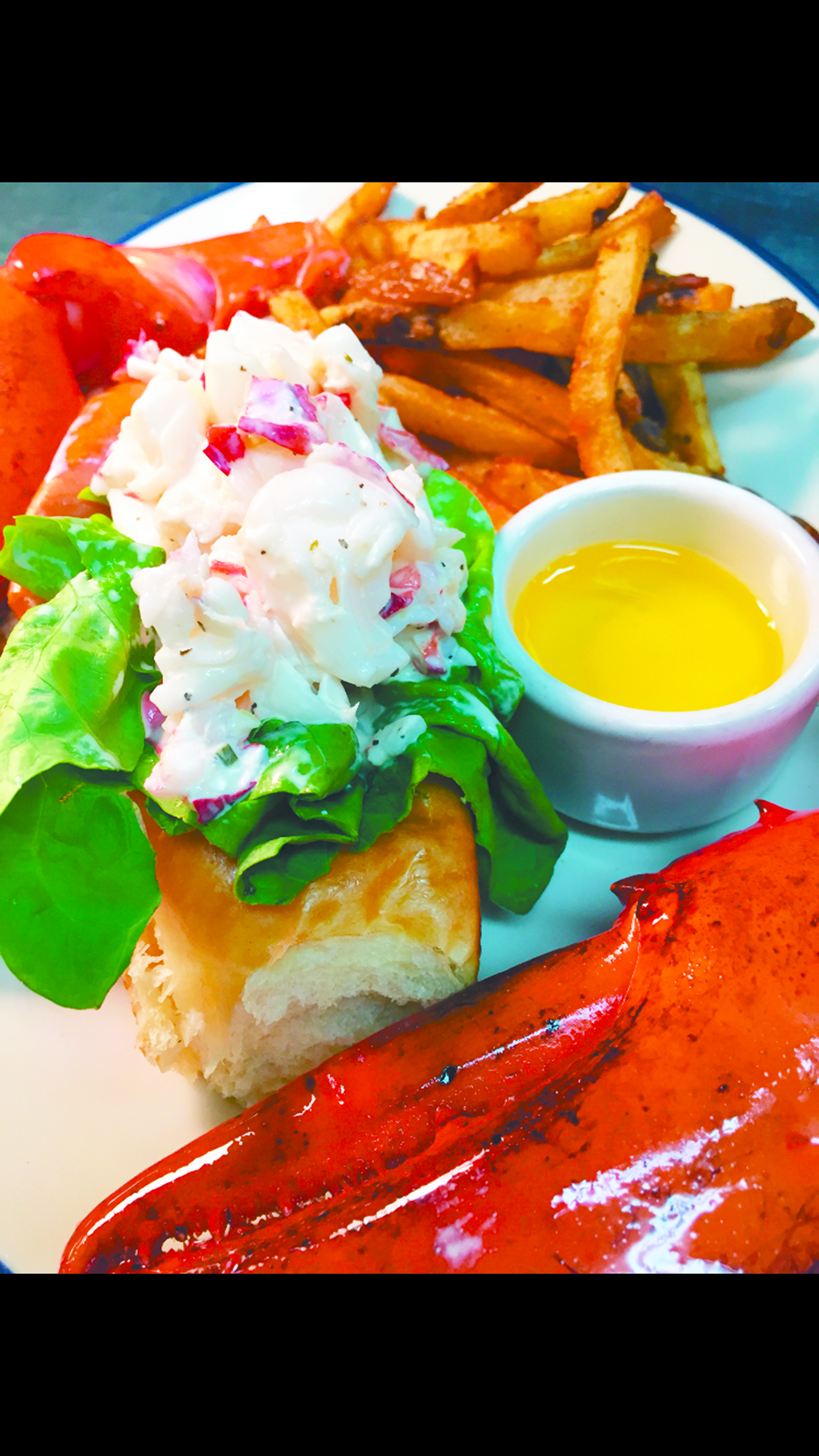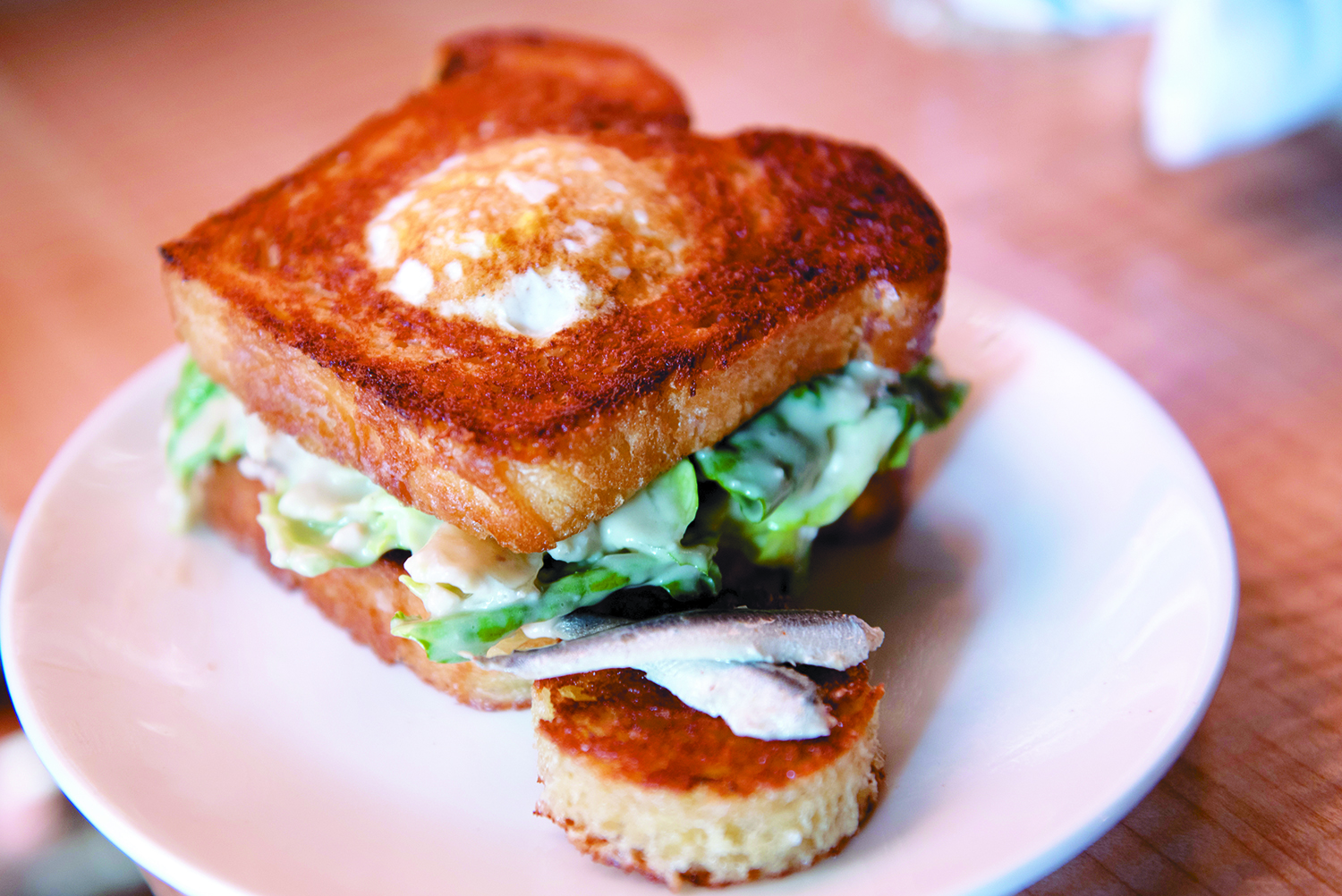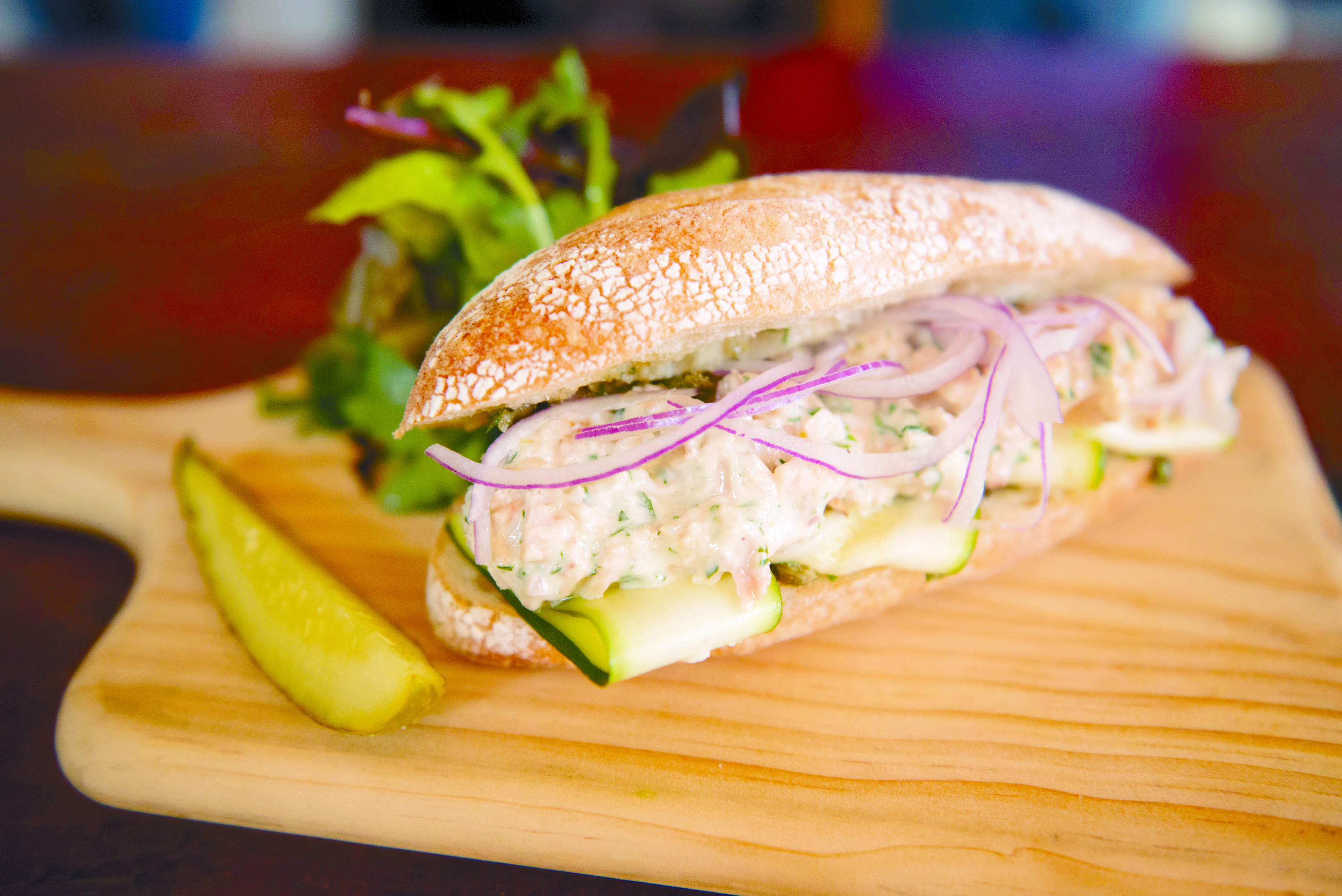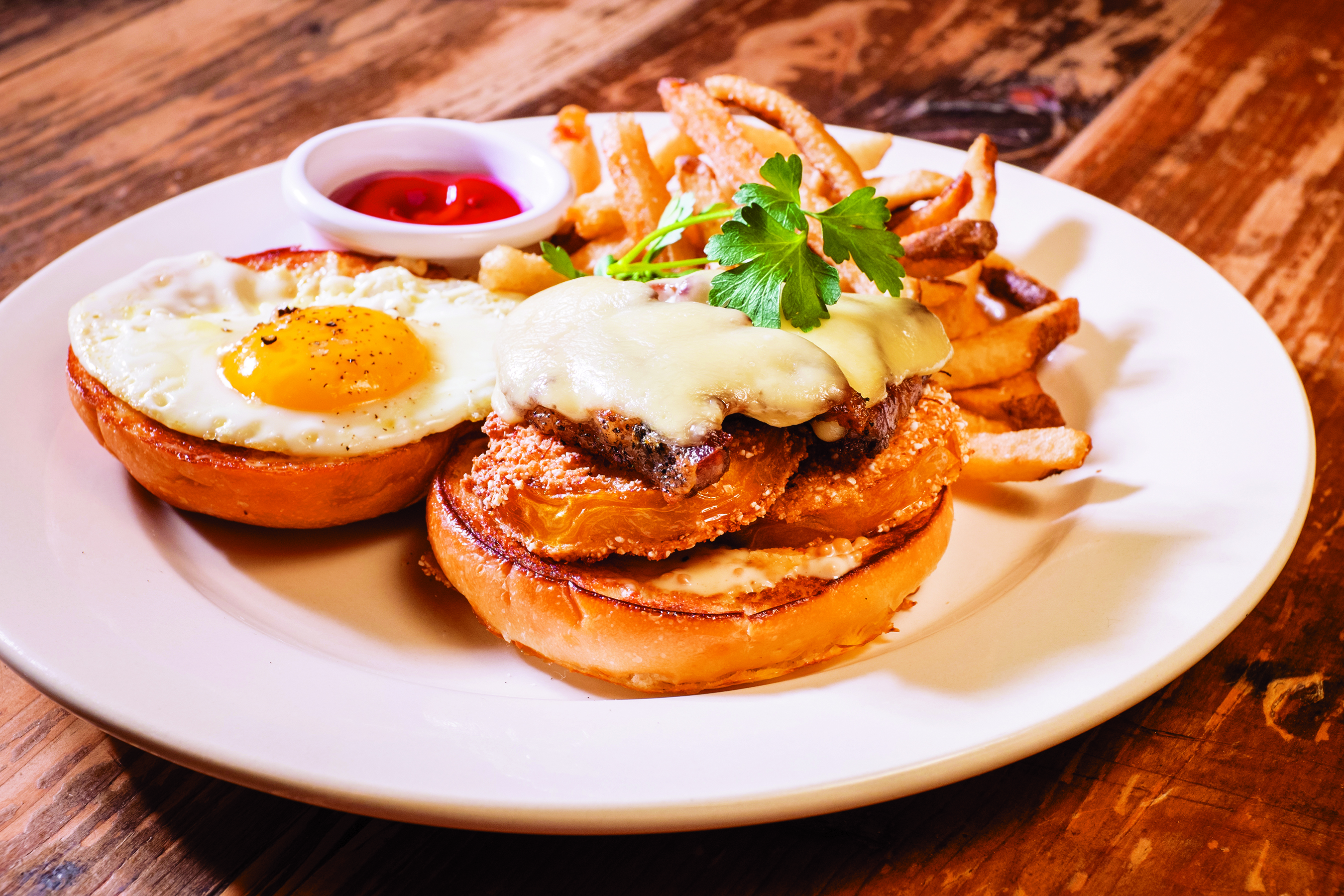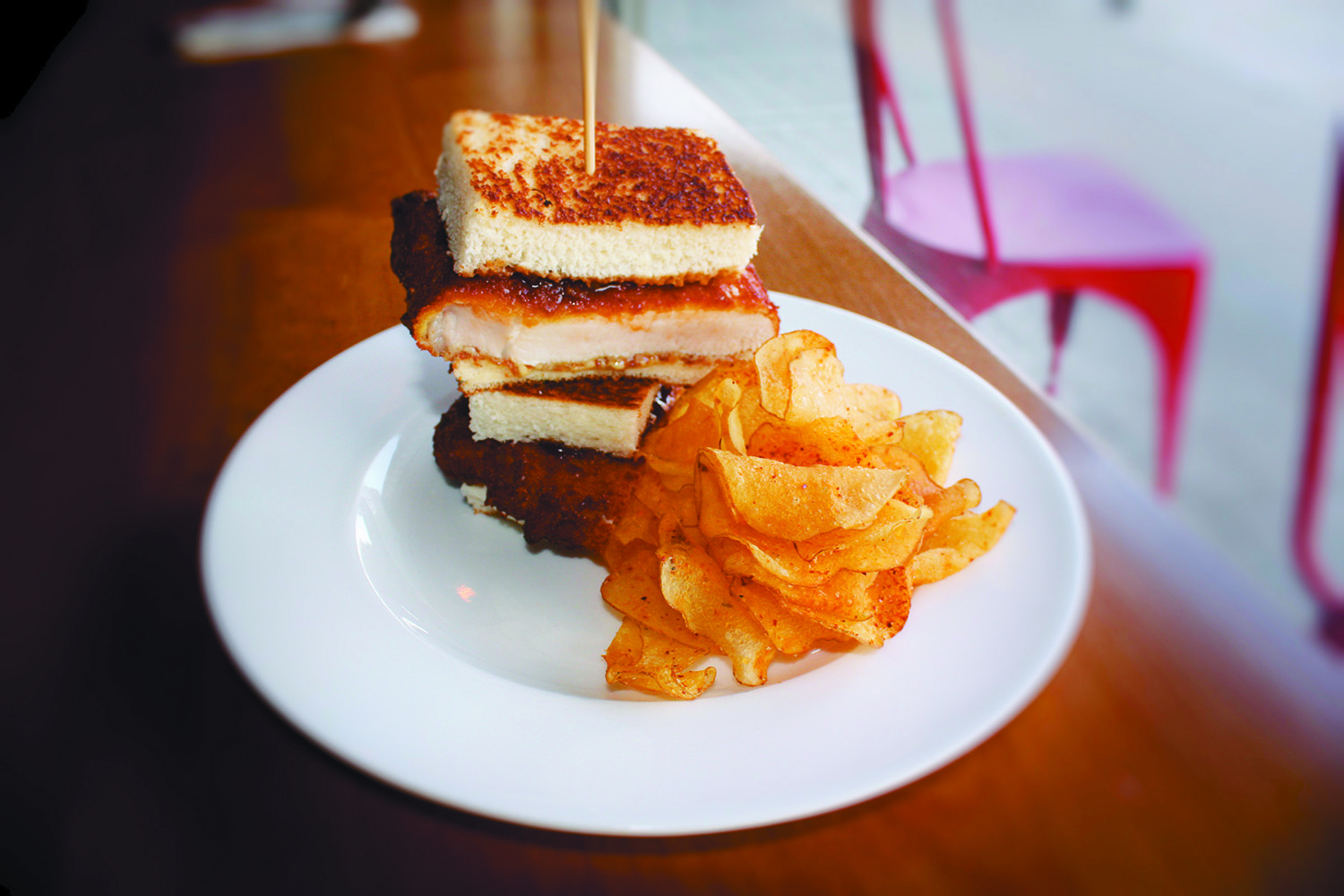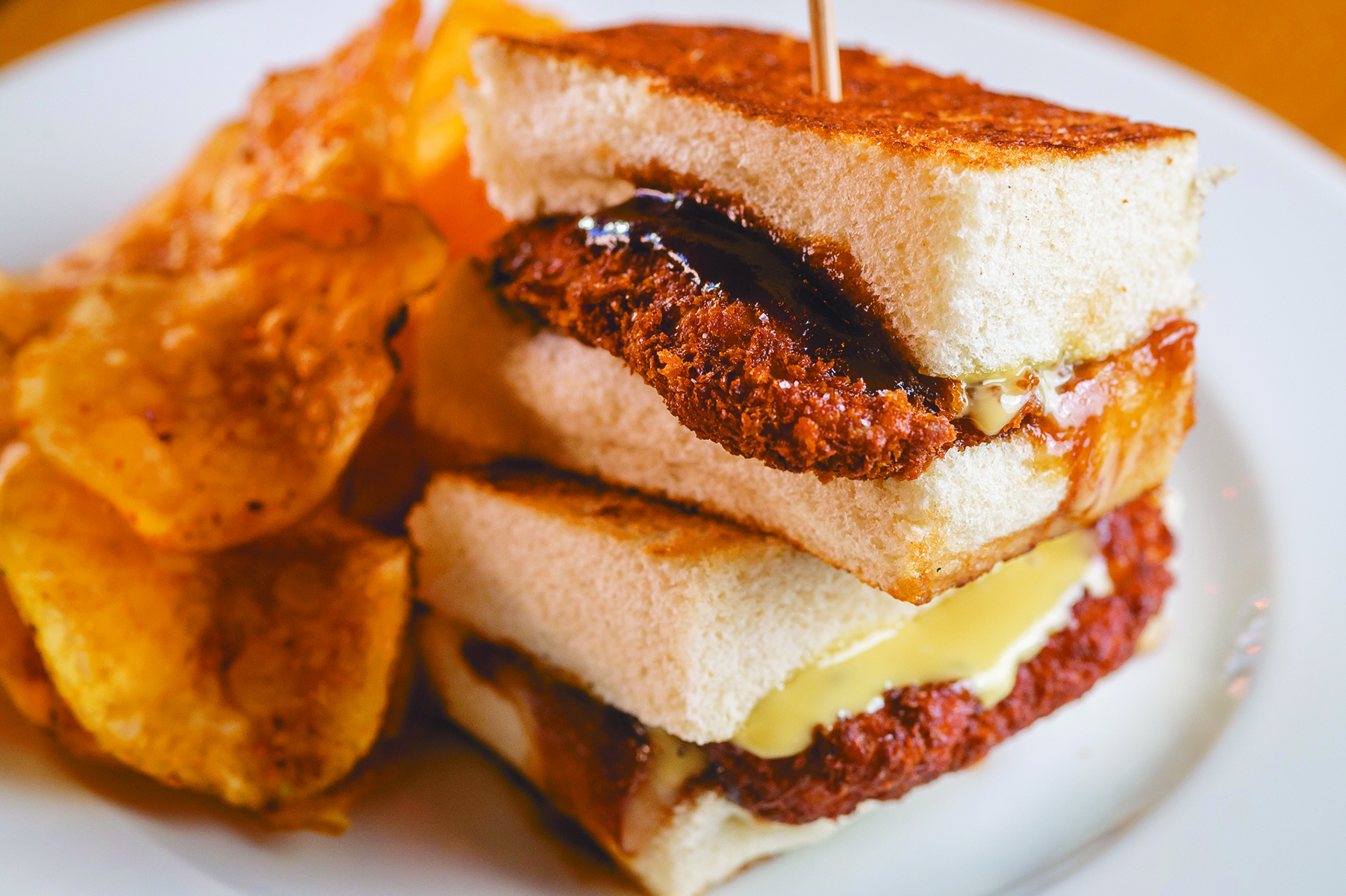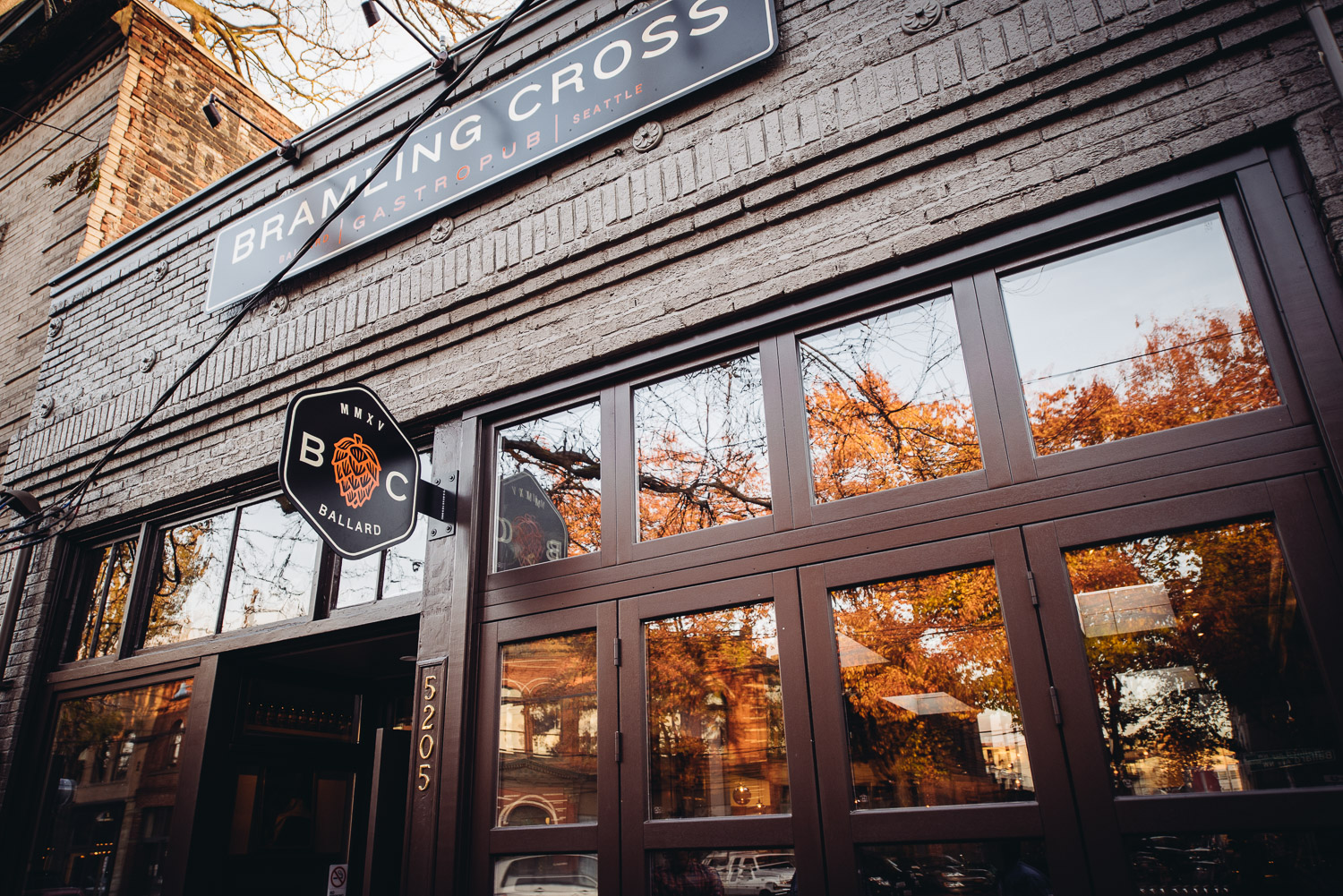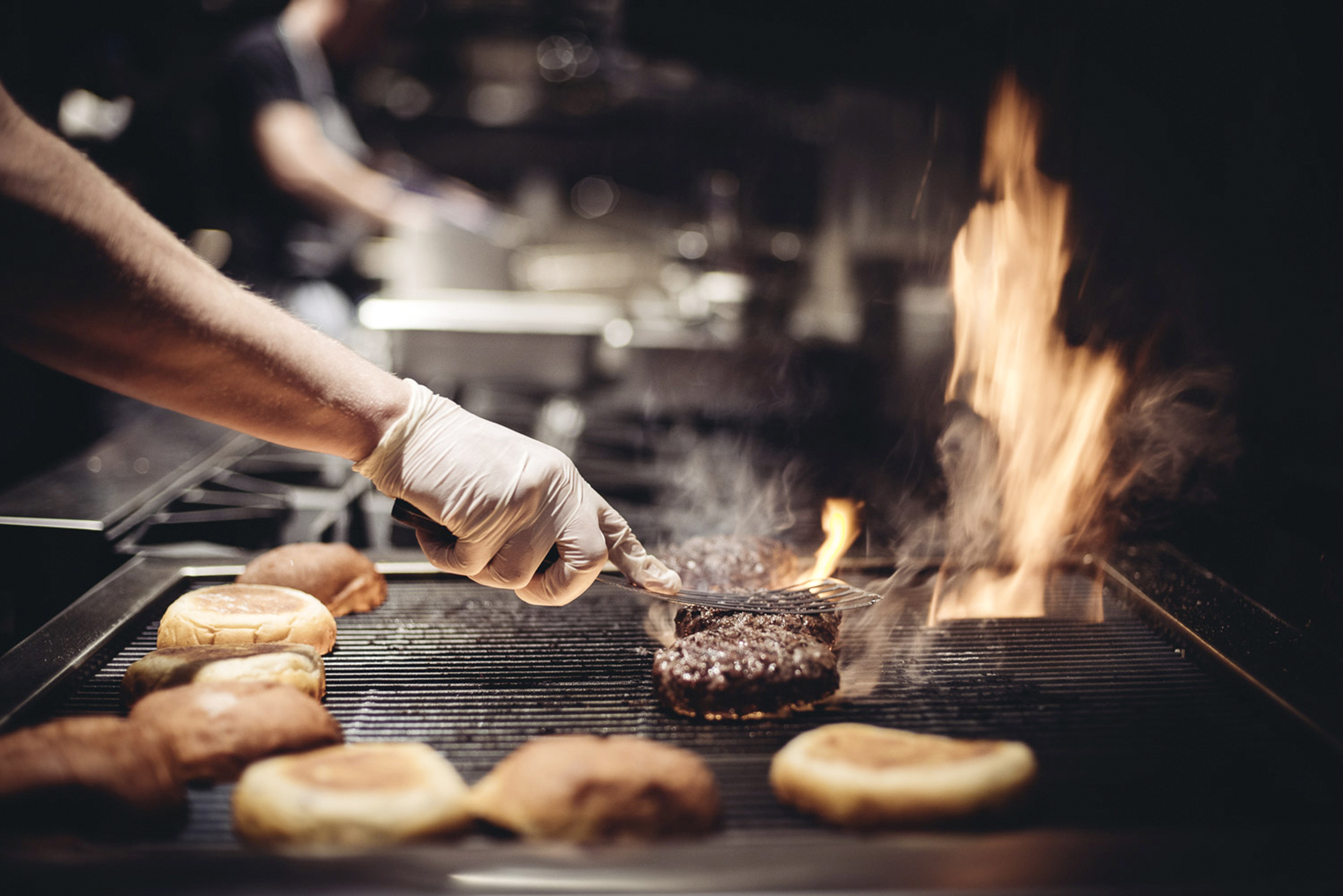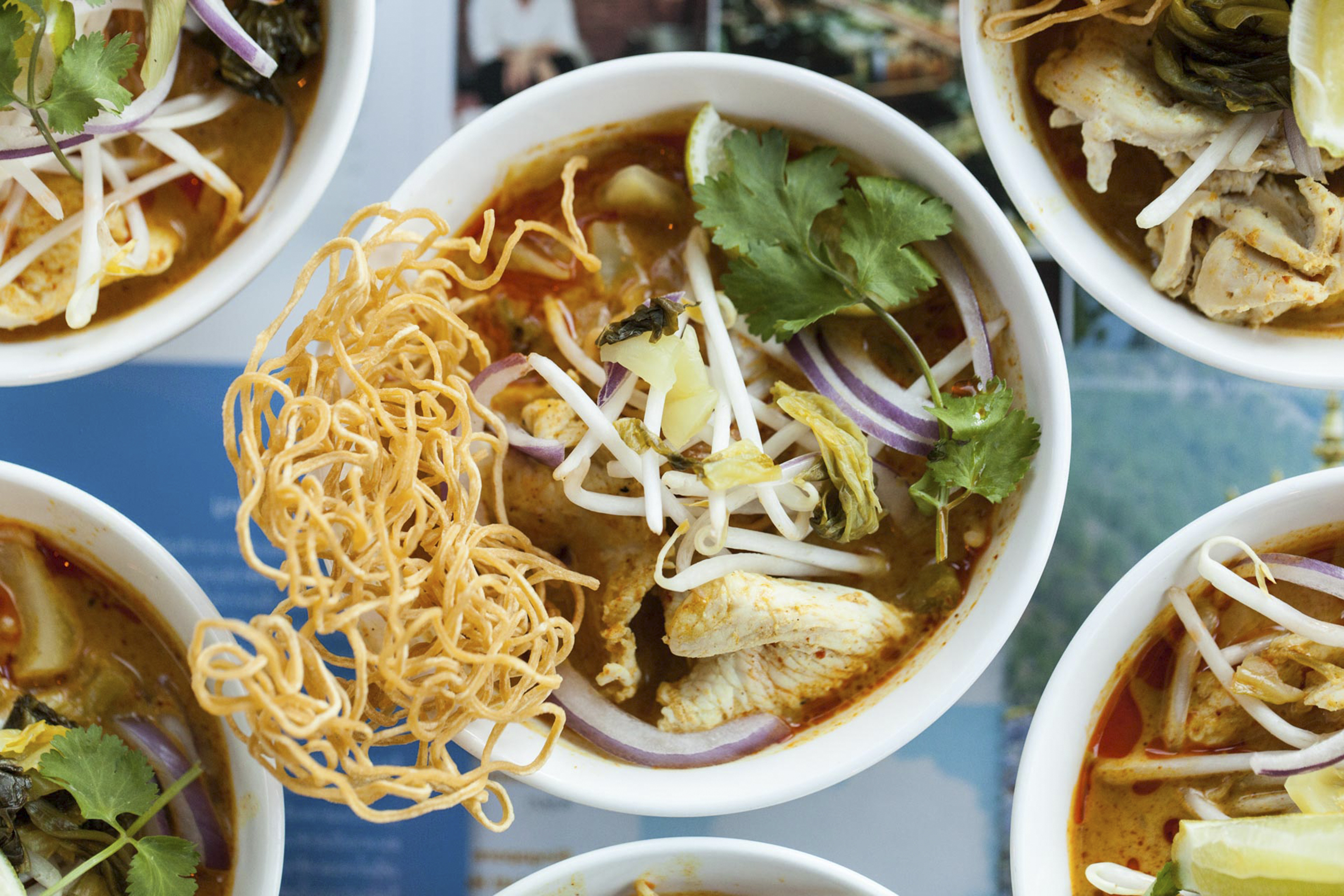If Paseo’s succes
s—and recent demise (and subsequent rebirth)—taught us anything, it’s the power of a good sandwich, and the magic that comes from very specific ingredients built in a very particular way. A sandwich is the ultimate composed plate; a juxtaposition of flavors, textures, and aromas, it is its own succinct meal. While the classic deli lunch sandwich will never go out of style, some of our best chefs have elevated the humble sandwich to a level of stardom that earns it a place on even the high-end plate, bringing exotic meats, ethnic flavors, and unexpected, farm-fresh ingredients that take us worlds away from turkey and Swiss.
With that, here are 10 must-try Seattle sandwiches that will challenge your perception of what a sandwich can be.
There’s a lot going on in this seductive vegetarian brunch sandwich, starting with charred kale. Like John Sundstrom at SLAB, chef Jason Stoneburner knows the virtues of burrata paired with a leafy veg; similarly, he also adds zing via pimento peppers and, even more creatively, with pickled fennel that stands out amid the multiple flavors. For textural interest, smatterings of chickpea cake are present, as is a piquant, herbaceous salsa verde. It comes on a round, housemade, thinner, crisper version of ciabatta.
A sloppy Joe is akin to meatloaf—part of your mother’s old-school but delicious dinner rotation (at least it was part of mine as a child in the ’70s). While you can argue that this is a sandwich that needs no bells and whistles, Good Bar refutes that line of thought. Served on a ciabatta roll, the beef from Painted Hills gets a dose of tomato (traditional) and stout (an outlier that brings more depth of flavor). It’s further radicalized with a creamy roasted onion aioli.
I’ll never forget the first time I had burrata. It was at my favorite neighborhood Italian restaurant in Brooklyn. I remember thinking “How can mozzarella be this creamy and delicious?” Easy: Just add cream to it. When I bit into the burrata treviso sandwich at SLAB, I had a similar reaction: “How can burrata be this creamy and delicious?” The quality is unparalleled, and its slightly sweet milkiness is a beautiful foil to the crisp, barely bitter treviso. A tiny spark of sour from Mama Lil’s peppers completes the trio, served on a baguette. The sandwich is so rich and dynamic that you may find yourself forgetting it’s vegetarian.
Chef Shane Ryan has many delicious sandwiches on the menu, but where else can you get one with braised rabbit? This sandwich incorporates leg and thigh meat; wild mushrooms, depending on the season (Ryan forages for his own on Whidbey Island); arugula; and an herb aioli. It comes on brioche, which adds a lovely sweet note.
No disrespect for the lobsters of the Pacific, but maybe, like me, you sometimes find yourself hankering for the boiled red Maine variety. If so, this is the place for you. Their 25-Minute Lobster Roll (meant to be shared by two), is three to five pounds of lobster meat—the tail served on a bun with butter lettuce and a spicy mayo celery sauce, and the rest on the side with some Old Bay. Market prices apply, so expect to pay about $85. I recommend washing it down with a bottle of house cava, a steal at $15 during happy hour until 6:30.
This reconstructed version of a Caesar salad comes with an egg cooked into the top slice of toasted buttery brioche (toad-in-the-hole style). Between the slices are crisp romaine leaves dressed with lemony, anchovy-forward Caesar dressing. When you cut into the sandwich, the egg mingles with the dressing, bringing even more lushness. An anchovy is plated beside it.
It’s not hard to find a salmon sandwich around town, but Ericka Burke changes things up with her tuna sandwich with pickled zucchini, red onion, baby arugula, and caper relish, served on a Columbia City potato baguette. She’ll also be serving it at her soon-to-open (at press time) Canal Market.
Over at Porkchop & Co., one of the best sandwiches on the dinner menu is not, in fact, the pork chop sandwich. Instead, a most sophisticated version of a grilled cheese steals the show. First, there’s the cheese: Cheddar and Gruyere. Then there’s the tangy blast of pickled Pink Lady apples and the sweetness of caramelized onions. Served on grilled sourdough, it’s ridiculously good. Should you choose to make it more gluttonous, add a slice of country ham for an extra $2.
When a friend told me about this sandwich, my first thought was: Gross. My immediate next thought was: I need to try it. Surrounded by taxidermied animals at this Capitol Hill pub, a decadent brisket sandwich is right at home. While it’s available only on the brunch menu, it could easily make a great dinner dish. The heaping pile of brisket is topped with a fried egg, fried green tomatoes, mustard aioli, and Swiss. It’s got heart attack written all over it, but the acidic flavors cutting through the fat are phenomenal. The side of french fries makes it nearly comical in its decadence.
Katsu Sando is a Japanese version of a pork-cutlet sandwich, breaded typically with panko. Recently opened global-street-food restaurant Nue hits the nail on the head, its pork loin cooked to perfection and nestled beneath the deep-fried exterior. Served atop toasted crustless white bread, the meat is dressed only with Kewpie mayonnaise (sweeter than Western mayo, made from rice-wine vinegar rather than distilled vinegar) and a housemade tonkatsu (a thick brown Japanese barbecue sauce made with Worcestershire, soy sauce, mirin, sugar, mustard, and garlic powder). It’s a deceptively simple but oh-so-addictive sandwich, served with their own Togarashi chips, dusted with red chili pepper and other spices like ginger and sesame.
John Sundstrom, SLAB
Who would have guessed that the chef who plates such refined food at Lark would open a sandwich shop? For John Sundstrom, it made sense to utilize the array of ingredients from his dinner menu in a novel way. He’s always enjoyed the French tradition of open-faced sandwiches and tartines, but the Lark menu didn’t quite fit with those. He also had fond childhood memories of going out with his mom for a crab roll, something that wasn’t easy to find in Utah (expect to see a crab sandwich with spreadable chorizo and apple fennel slaw soon). Besides sandwiches, SLAB also offers savory meat pies packed with short ribs and wild mushrooms. But we’re in love with his burrata sandwich with treviso and spicy peppers (see page 17), as well as his super-original smoked faro bread (made in-house and toasted) with smashed avocado and tomato-ginger jam. Of the popularity of his sandwiches, Sundstrom says, “It’s a tricky thing, because even though we make really great sandwiches with quality ingredients, we’re still kind of competing with the Subways of the world. Because of their price points, people think a sandwich should be six bucks instead of seven or eight.” Trust us, these sandwiches are worth the extra couple dollars.
Paul Osher, PORKCHOP & CO. When Paul Osher, who grew up in a family that ran a kosher meatpacking company, opened Porkchop & Co., he didn’t expect that people would flock to the Ballard restaurant for sandwiches after lunch hours. But while the restaurant features plated entrees at night (mostly deconstructed versions of his sandwiches), the sandwiches themselves took on a life of their own at dinner. And despite the name of the restaurant, Osher, who was a vegetarian for many years (“I lived off cheese and mustard sandwiches; it was kind of sad” ), brings not just meaty goodness (a la the whole bone-in pork chop sandwich), but incredibly flavorful and out-of-the-box veggie concoctions like a smoked beet sandwich. “One tricky thing when putting together a vegetarian sandwich is making it rich enough to feel like a meal,” says Osher. “But our beet sandwich is so good and flavorful, yet pretty light, it’s not at all what people expect.” About sandwiches in general, he says, “It’s all about balances, figuring out what goes well together; anything really rich paired with something that cuts though it, like pickles, for acid, or something sweet or spicy. Things that are more bland with something really flavorful.” Besides his deli background, Osher’s sandwich career all began with a grilled-cheese invitational in L.A., where his Cheddar-apple melt (see page 18) won a judges’-choice award. “It was the weirdest, craziest thing I’ve ever been to,” he chuckles.
A sandwich is only as good as the bread it’s built on. Most chefs get their loaves from Macrina, Columbia City, or Grand Central Bakery. But no matter where they shop, they all agree on the types of bread that pair best with specific ingredients.
THE BAGUETTE It’s got a great chew, and you need to unlock your jaw to get into it, which makes this option great for hearty sandwiches like “a big old angry Italian sandwich,” says Matt Snyder of DeLaurenti. John Sundstrom of SLAB likes using a rustic, crispy baguette from Columbia City Bakery to contrast the creamy tenderness of burrata cheese. Meanwhile he opts for a softer, larger baguette from Wild Wheat Bakery when he does a Cuban or brisket sandwich because it has a chewier texture that works great when grilled.
WHEAT BREAD Macrina’s Vollkorn is a slightly sweetened wheat bread topped with flecks of sea salt and pumpkin seeds, which gives it a deft balance of sweet and salty. The kiss of honey in the dough makes it a perfect partner for something like roasted chicken and veggies.
GIUSEPPE BREAD Macrina’s version of a classic Italian loaf, it’s the go-to bread at Paseo and Salumi, and doesn’t have as formidable a crust as a baguette; it’s also lighter and airier on the inside. It’s a great bread to grill because it gets crackly on the outside but gives way to the sandwich’s interior, so you’re not going to cut the roof of your mouth. It’s also mild in taste, which allows other flavors to take center stage.
CIABATTA Paul Osher of Porkchop & Co. is a fan of ciabatta rolls because of their softness, which allows you to pile a lot into them. Plus they have a lot of flavor, unlike the tamer-tasting Giuseppe bread. However, he never uses them for a grilled sandwich; the air pockets make it holey, which can create a big mess. The sloppy Joe over at Good Bar (see page 15) also comes served on ciabatta.
SLICED BREAD No, we’re not talking about Wonder Bread. Nice for toasting and for something good-sized, sourdough and rye are great options when it comes to bread by the slice, according to Osher.
Besides the bread and the main ingredients (usually the protein or a veg), no sandwich is fully realized without the condiments, which can give it a spark and bring all the disparate parts harmoniously together. Here are some trends and specific products that make chefs (and thereby, us) swoon.
MAMA LIL’S PEPPERS Ever wonder why just about every restaurant—from pizza joint to trendy gastropub—offers these locally made babies somewhere on its menu? These pickled peppers are especially good at bringing zing and crunch to a rich sandwich, as are most cured peppers. But this is a family-run business, named after owner Howard Lev’s mother, with peppers made from a recipe from Abruzzo, Italy. “You won’t find this pepper in most regions in Italy,” he says. Lev has grown his spicy goathorn peppers in the Yakima Valley since 1992, where the arid climate with cold nights and warm mornings allow the peppers to fully mature and ripen, giving them a nice sweetness and orange color. He sold his first batch out of a Unitarian church. Unlike most pickled peppers, these are completely drained from their vinegar brine (allowing the flavor of the garlic and olive oil to permeate), so you don’t get that sharp, astringent note. Now you know.
SPEAKING OF PICKLED THINGS Maybe you grew up eating sandwiches with oval slices of dill or circular sweet-and-sour bread-and-butter pickles. But these days, chefs pickle just about every veggie and fruit they can get their hands on (a stop at any of Renee Erickson’s restaurants will prove that point; pickled figs or plums, anyone?). Pickled items help break through the richness of many a decadent sandwich. At Stoneburner, Jason Stoneburner pickles fennel for his charred-kale sandwich (see page 15) and Ericka Burke pickles zucchini for her albacore tuna-salad sandwich (see page 18), while over at SLAB, Sundstrom pickles baby bell peppers and jalapenos, and also ferments and then cold-smokes cucumbers, which add a smoky, tangy blast to his Cubano. Another favorite there: crispy chicken skins, available to order on any sandwich. Because we all need a little more fat in our lives.
GOURMET MAYO Put down the Hellmann’s and step away. Chefs and specialty shops make and sell their own in-house mayos or aiolis, like DeLaurenti’s Black Truffle Mayo, which is not as intense as truffle oil. “It doesn’t have to be the lead singer in the band, it can just play the drums, man,” says Snyder. Shane Ryan at Matt’s in the Market makes horseradish aioli for his sandwiches, as well as a sambal mayonnaise (see page 17), and the folks at Good Bar have a roasted-onion aioli (see page 15). For his “fishwich,” Ethan Stowell goes for a malt-vinegar aioli and applies a simple lemon one for a Dungeness crab roll. Ericka Burke looks to herbs, like basil and cilantro, for her mayos and aiolis. At Miller’s Guild, Jason Wilson makes one from the juices off the massive “Infierno” grill! And at Bell + Whete, a ham aioli is made from speck, charcuterie, and pork scraps reduced to a pork stock until the liquid is gone. That softened meat then gets folded into their garlic mayo. Wowza.
SAVORY JAMS Skillet made the bacon jam a hit on its burgers, and other chefs now play around with tomato and onion jams and the like, usually to add a sweet/sour dimension to a sandwich. At Volterra, an apricot chutney gets a spicy/salty kick from ginger, red chili flakes, onion, cinnamon, and clove for their crab-cake sandwich.
CHIPS OR FRIES: A POLL
We asked. You told us. When you’re noshing on your favorite sandwich, would you rather the hard snap of a chip or the slightly softer crunch of a fry to accompany it? Fries were the surefire winner, followed by chips and, close behind, the wishy-washy “I’ll take either.” What we can’t wrap our heads around? The 7% of you who said “Neither.”
